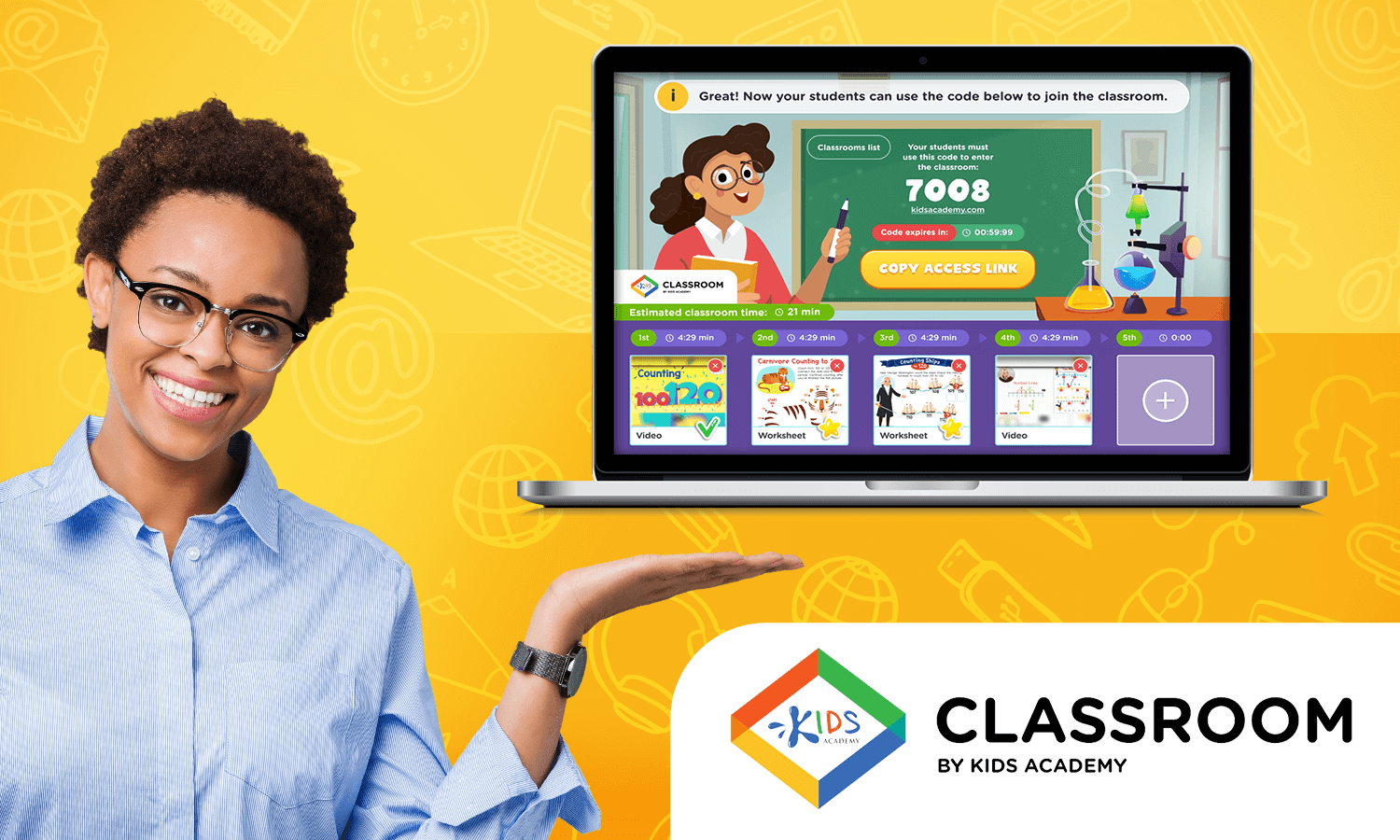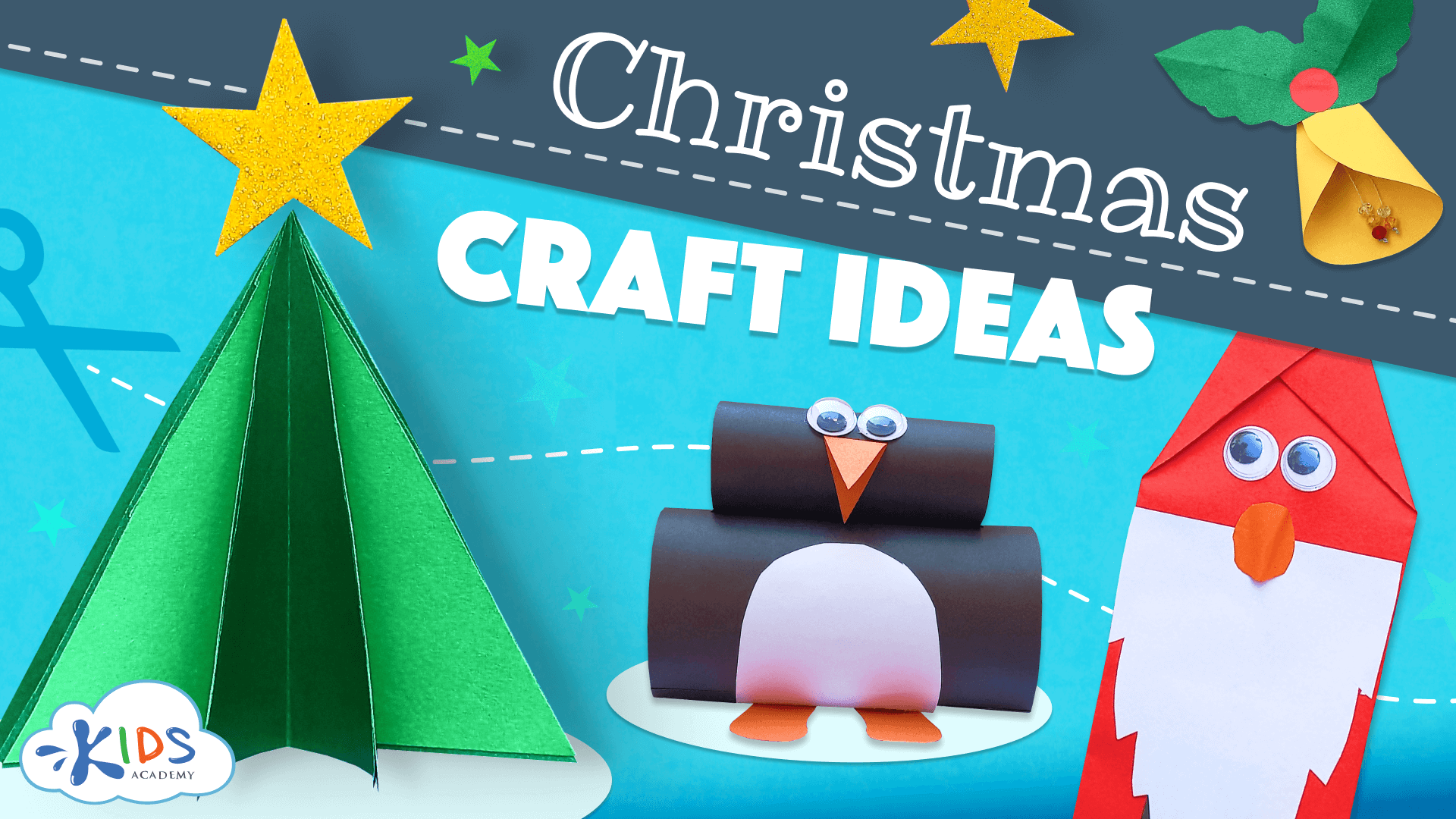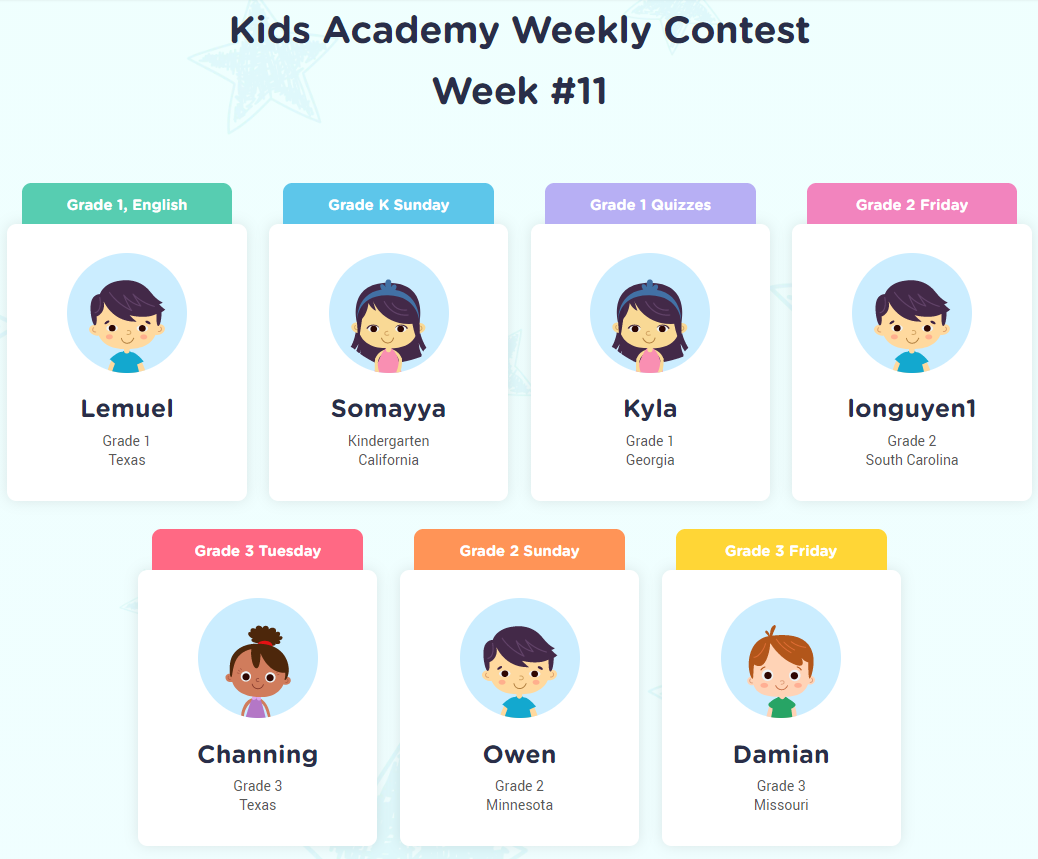Phonics skills development Worksheets for 4-Year-Olds
5 filtered results
-
From - To
Discover our engaging Phonics Skills Development Worksheets for 4-Year-Olds, designed to make learning fun and effective. These colorful, educational worksheets incorporate age-appropriate activities that introduce young learners to letter sounds, blends, and early reading concepts. Each worksheet aims to build a strong phonics foundation, enhancing kids’ reading abilities through playful exercises like matching letters to images, tracing, and sound recognition games. Perfect for both classroom and home use, our worksheets support early literacy, empowering your child to become a confident reader. Start your child’s phonics journey today with Kids Academy's expertly crafted resources!
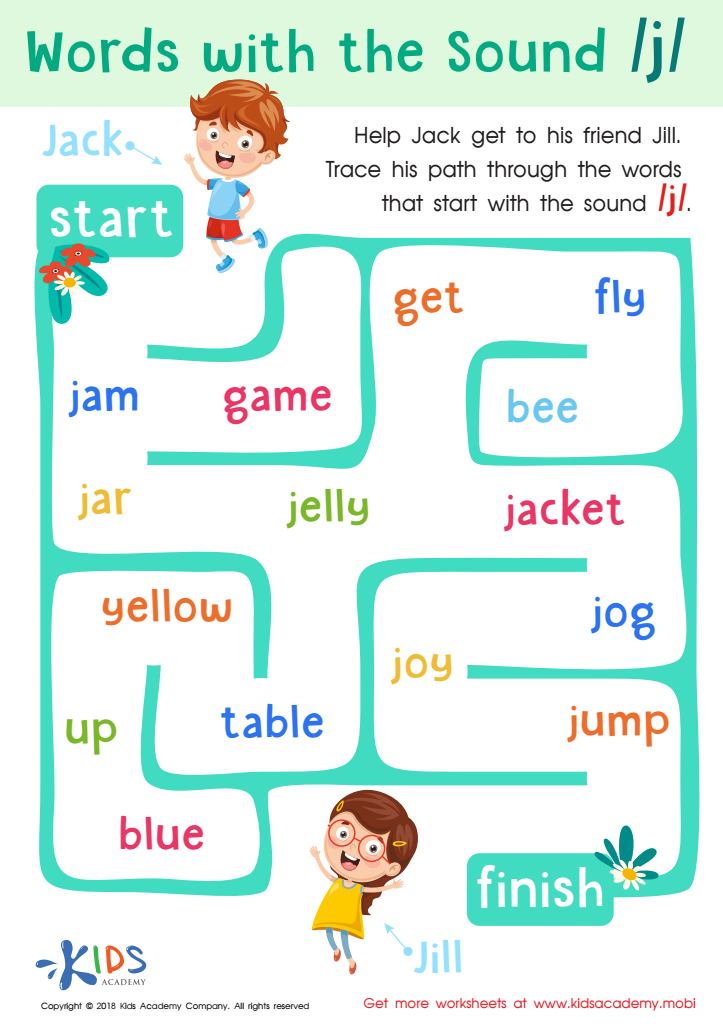

Words with sound j Reading Worksheet
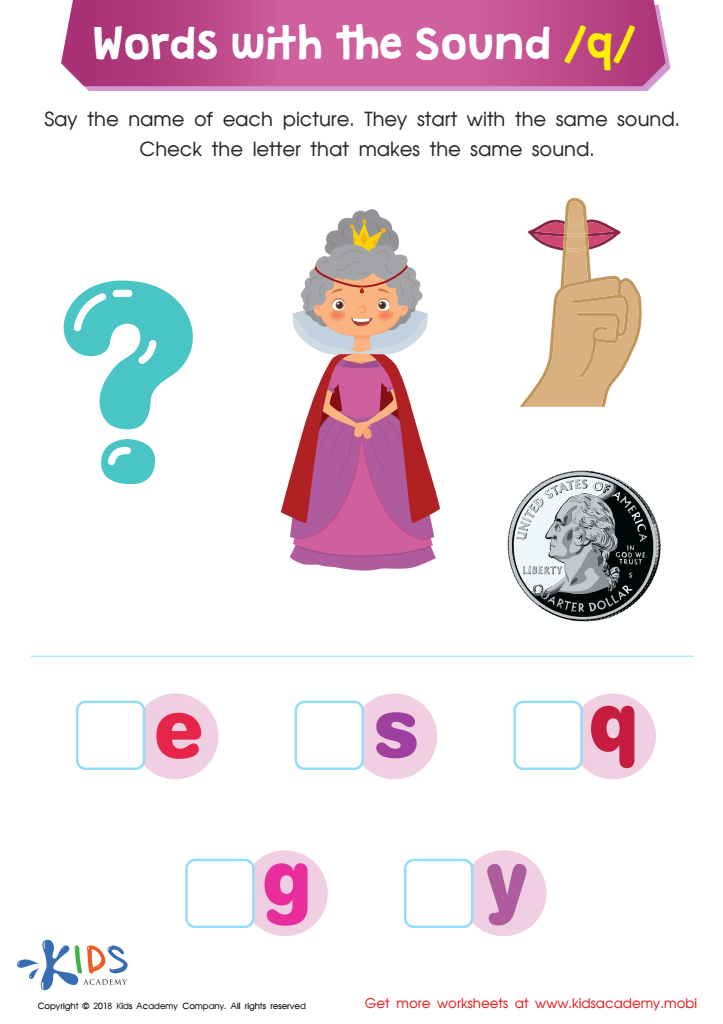

Words with Sound Q Reading Worksheet
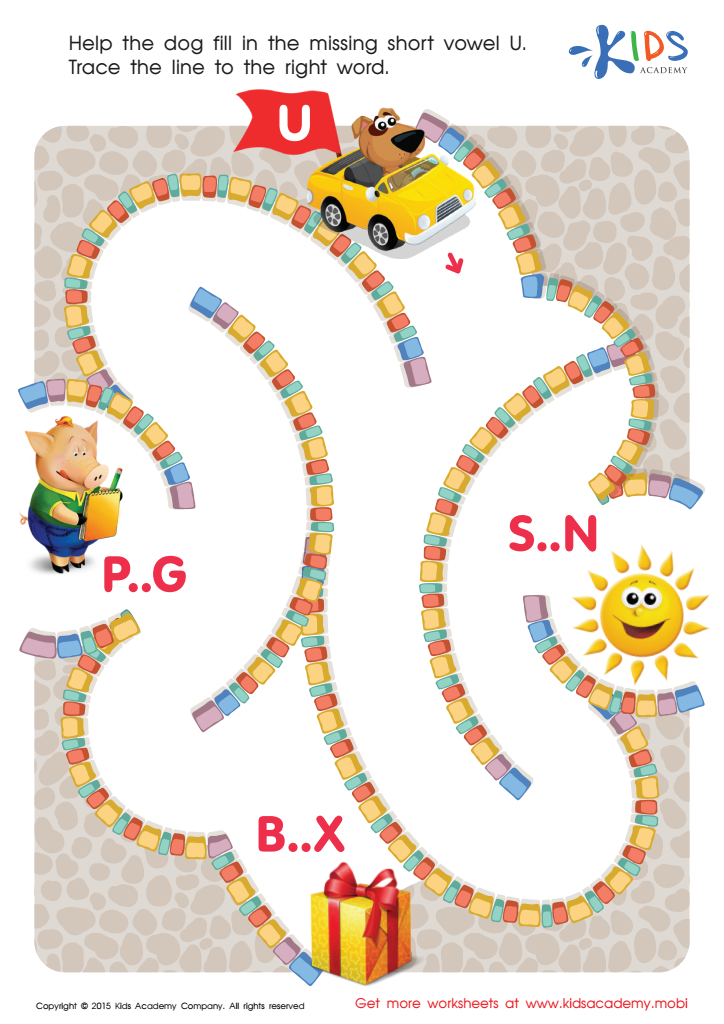

Short Vowel Sound U Worksheet
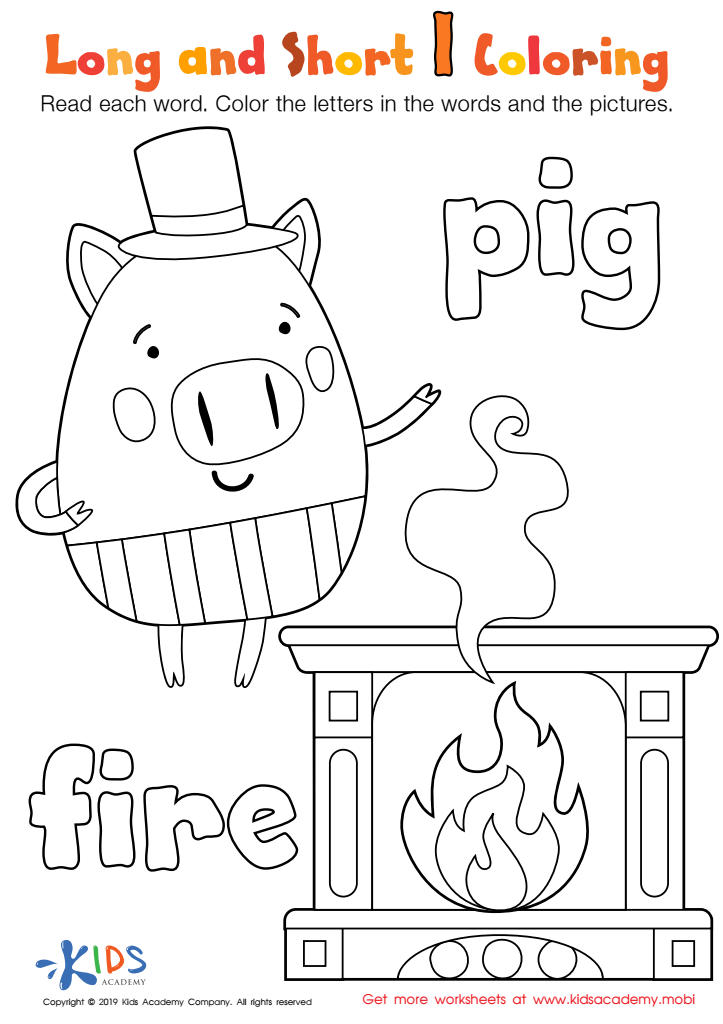

Long and Short I Worksheet
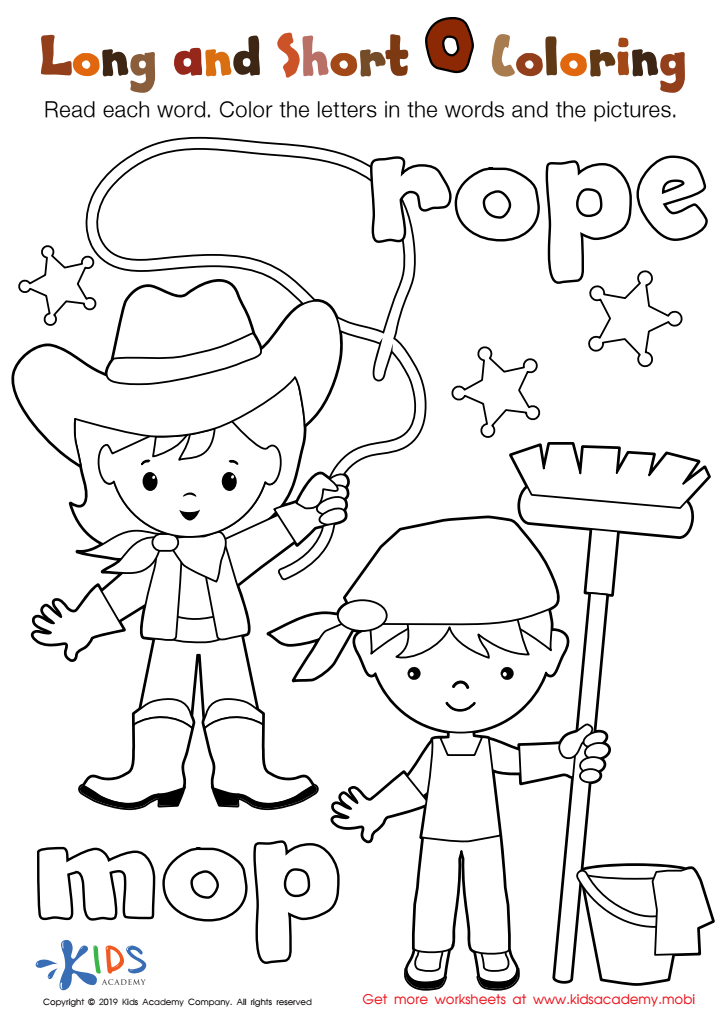

Long and Short O Worksheet
Phonics skills development is essential for 4-year-olds because it forms the foundation for effective reading and writing abilities. At this age, children are at a critical stage of language acquisition, where their brains are particularly receptive to learning sounds and recognizing patterns. Phonics helps children understand the relationship between letters and their corresponding sounds, which is crucial for decoding words and developing literacy.
For parents and teachers, fostering phonics skills in young children can lead to significant long-term educational benefits. Children who have a strong grasp of phonics are more likely to become proficient readers, which enables them to achieve better academic outcomes across various subjects. Early phonics education can also boost children's confidence and enthusiasm for learning as they experience success in reading activities. This early positive experience with reading fosters a lifelong love of learning and curiosity.
Moreover, phonics instruction can help bridge gaps for children who might otherwise struggle with literacy. It provides a structured and systematic approach to teaching reading that supports all learners, including those with learning disabilities or language delays. Therefore, investing time and effort into developing phonics skills in 4-year-olds sets a strong educational foundation that can significantly impact their overall academic and personal success.

 Assign to My Students
Assign to My Students



